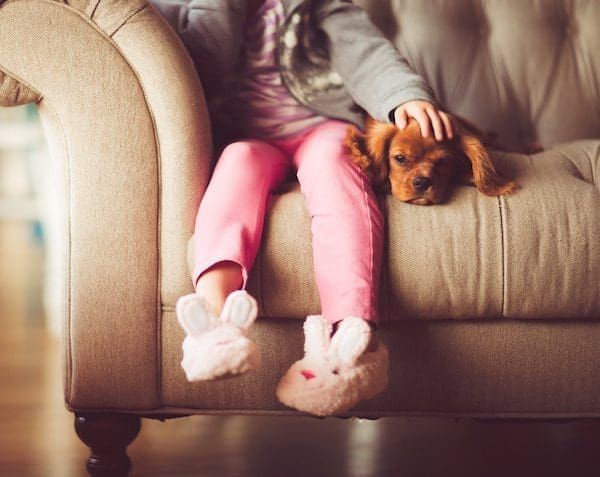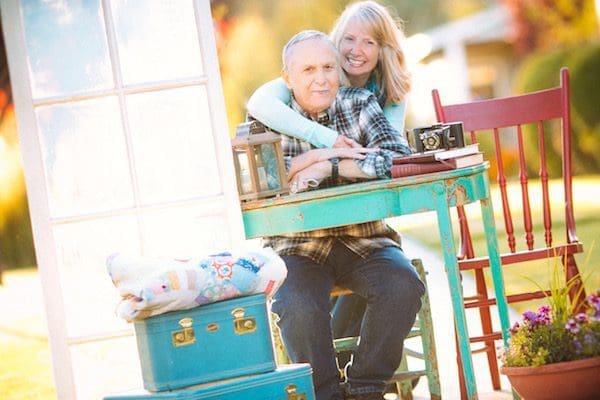Over the past few years, a number of people have asked about best ways to support a newly-diagnosed-with-cancer friend, neighbor, or family member. Or how to support a close friend who just learned a loved one had cancer.

Photo credit: Unsplash
Keeping in mind that every cancer patient will be at a different place in terms of diagnosis, long-term prognosis, and state of health and energy and appetite, here are several suggestions Hubby and I found overwhelmingly supportive:
1. Beverages. Friends stopped in for short visits carrying banana milkshakes, mango smoothies, strawberry frappuccinos, all designed to entice Hubby toward more calories. And then there was the Porch Fairy’s 7:30 a.m. Chai tea delivery to our front porch. After Daughter Summer arrived from New Jersey, Chai tea and Americano coffee found their way to our front porch. Daily.
2. Food. Entire meals were delivered to our home and then later to Hubby’s room at Hospice House, more food than Summer and I could possibly eat, since Hubby wasn’t eating much at that time. The key is moderation. One evening a friend brought two rice-and-bean bowls from Cafe Yumm, which is an example of the perfect meal. No leftovers to squeeze into the overflowing fridge.
In addition to full meals, there were homemade soups in Mason jars and hand-crafted salted dark chocolate chip cookies and specialty breads — pumpkin loaves, banana nut bread, scones, bagels with vanilla cream cheese spread. And it all nourished our souls as well as our bodies.
3. Gift baskets. Gift baskets were brought to Hospice House while Summer and I were camped out there — fresh fruits, dried fruits, pretzels, dark chocolates, and other yummy munchies for the caregivers who stood watch beside husband, father.
4. Gift cards. We received thoughtful gift cards to establishments such as Whole Foods, Starbux, Barnes & Noble. One can never have too many books or too much good food. Or too many Chai teas, for that matter.
5. Girl gifts for the patient or caregiver. A number of personal girl gifts were delivered or mailed — lotions, mugs, socks, candles, wooden box signs with encouraging sayings, picture frames, books, bath salts — all lovely and thoughtful offerings that said, “Here’s something to refresh your body, soul, and spirit; something to make you feel loved.” And I did feel loved.
6. Photo album. Our hike leader’s wife put together a hardbound, full-color Shutterfly picture book downloaded with memories on mountain trails in hiking boots and snow-shoes. This book, a rare treasure.
7. Photo session. Kris, a niece and photographer, shot photos of us just six weeks before Hubby died. In the pictures, Hubby’s hair has grown in a little grayer after chemo, but he doesn’t look as if he has only six weeks of life left. I will treasure these photos for always.
Photo credit: Simply Kristina Lee Photography
8. Books, magazines. If your friend or his/her caregiver like to read, a short uplifting or entertaining book, or a magazine with brief articles is always a nice gift. If the patient doesn’t have the strength to read at the moment, it’s quite a lovely thing to be read to.
9. Coloring books. If the patient or caregiver could use some therapeutic creative quiet time, adult coloring books with a selection of colored pencils is a great idea.
10. Yarn and knitting needles. A gift bag with yarn and needles was left on our front porch with this card: “With love, the Knitting Fairy.” I immediately started knitting a pair of fingerless mittens. Talk about therapeutic.
11. Gifts to celebrate the season. Hubby was slowing down during the winter holiday season. Pumpkin pies and pumpkin-shaped candle holders were left on our front porch. A little later, a beautiful Christmas wreath crafted from fresh boughs and dressed in burgundy ribbon showed up on our porch.
12. Puppies. Summer stood with us the last three-and-a-half weeks of her father’s life. Because she used to live in Bend, she had her own circle of friends. One friend, Carrie, called and asked what she needed. “I need a puppy,” was Summer’s response. Carrie brought her cocker spaniel to Hospice House so our daughter could cuddle with a dog that reminded her of her dog back home. Summer: “It’s those little things that made the difference.”
13. Stamps. This may seem like an odd way to offer support, but a gift package in the mail included sheets of stamps. With all the thank-you notes that needed to be written, this was a rather thoughtful gift.
14. Bouquets. At various times, there were sunflowers smiling at me, and autumn-rich colors brought indoors via a leafy bouquet, and beautiful creations from the gardens of friends and from local florists. It was rather nice to have a touch of color amidst the mini-pharmacy that our kitchen counter had morphed into.
15. Household help. Our toilet clogged. I wrestled with the plunger to no avail. I sent a desperate email to a handful of friends and, boom, our toilet was unclogged within a few hours.
A friend transplanted our bird feeder so Hubby could watch the action from his hospital bed in the living room.
A slow leak in one of our tires. Not able to leave Hubby alone—unsteady on his feet and with a tendency to escape his hospital bed—I sent the call out on Facebook: “Does anyone have time to take a slow-leaking tire in for repair?” By mid-afternoon, a friend had picked up our vehicle and safely returned it with a new tire.
After surgery that left Hubby in no shape to climb up on a ladder, and me without the emotional strength to string Christmas lights that year because we were reeling from the news of terminal cancer, a young friend and her husband strung our outdoor lights. Lovely thoughtful gift.
16. Cable television. “This is going to sound awkward,” said the voice on the other end of the call, “but in lieu of flowers, we’d like to pay for cable during football season.” Hubby and I both got misty-eyed. The cable guy showed up and we were now in business. Are you ready for some football?!
17. Visits. Several friends stopped by and Hubby enjoyed every visit. One friend, upon saying good-bye, did a double-take. “What did you say?!” he asked with an incredulous look on his face. Hubby repeated what he’d said in his dead-pan way: “It sure is hard to die with so many people visiting.”
18. Keeping company with the patient. Offer to sit with the patient—bring a book to read or a game to play, depending on the patient’s wakefulness—so the caregiver can run errands or simply sit on a park bench overlooking the river.
When Summer booked a flight to Oregon, her main objective was to support me while I cared for her father. Summer: “I saw my role as coming in and taking care of Mom. It’s hard work to be a caregiver. Dad had become childlike and I remember thinking, This is like taking care of a toddler or a baby.
I knew Mom needed breaks – even if it was to take a walk, or take a longer-than-normal shower.
19. Errand-running. While it’s nice to offer to keep the patient company so the caregiver can run errands, sometimes it’s nice to run the errands: pick up groceries or dry-cleaning, drop off library books or tax documents, take the dog for grooming or the car for an oil change.
20. Being proactive. If you live in the same town as your friend, text or call with a specific offer: “Can I come clean your house?” “Can I pick up your kids after school and take them for frozen yogurt?” “Can I set up a food delivery system for you and your family?” This thought from Summer:
If you say, ‘Let me know if you need any help,’ that’s different from being proactive and showing up.
21. Airline miles. If you have extra airline miles, consider providing a ticket for your friend’s cousin, favorite aunt, college roommate — someone from across the country who might not otherwise be able to visit.
22. Funds. After Hubby died, it was an unexpected and humbling experience to open card after card out of which fluttered so many checks — enough funds to cover the funeral home expenses, which meant so much to this new widow who had just lost half her income.
Also, GoFundMe is a crowdfunding platform worth looking into if your friend needs help financially with the cost of cancer treatment or cost of living expenses during cancer. GoFundMe allows a family member or friend to create a website and describe their fundraising cause. People can donate through the website, patient updates can be posted, and donors can leave comments. Disclaimer: Before donating to a person or a cause, please check to make sure it’s legitimate.
* * *
Obviously these ideas are apropos for people suffering from any number of illnesses or accidents, and for people providing care for an aging parent with heart disease, or a child with a disability, or a spouse with dementia.
There was a day when my daughter commented on how peaceful it was in our home and how glad she was to be there. Much later while reflecting back to that time, she said:
I was able to see community in action. And when you experience that, it changes you. You can’t pay it back but you can pay it forward.
There were no small gifts. Every gift was massive and love-filled and so extravagantly supportive. God wanted to produce beautiful humility in me by teaching me to ask for help and to accept gifts.
And the sum of all this support and kindness was greater than its parts.
What about you? In what creative ways have you been supported while going through a difficult time?
P.S. If you found this post helpful or inspiring, please share, tweet or pin!


Cristina Whitehawk
Weekly hand made post cards with supportive messages from two artist friends. Six months worth. I felt so loved.
Marlys Johnson
Wow, six months worth. I love that idea, Cristina.
Julie Miller
Dog walks. When we were housebound recovering from surgery the dogs (huskies) needed to walk/run. Our adult children would come by a couple times a week and pickup our dogs to take on a run with theirs, it was a huge relief and so appreciated.
Marlys Johnson
Excellent, Julie!